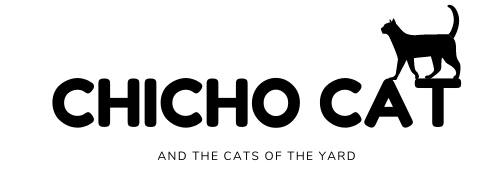Can cats eat rice? Absolutely, cats can eat rice, and it can even be beneficial in certain situations. Rice is considered a safe and easily digestible grain for cats, often recommended by veterinarians for digestive issues or as part of a bland diet for cats with gastrointestinal problems. While cats are obligate carnivores, meaning their primary nutritional needs are met through animal-based proteins, incorporating small amounts of rice into their diet can provide a source of easily digestible carbohydrates. Plain, cooked white or brown rice, without any seasoning or additives, can be a suitable addition to a cat’s meal, especially if they are experiencing digestive upset or diarrhea.
The bland nature of rice helps soothe the stomach and can aid in firming up loose stools due to its binding properties. In cases where a cat has an upset stomach or needs a gentle diet, boiled chicken and rice are often recommended to provide some relief and proper nutrition without causing further digestive issues.However, rice should only be a supplementary part of a cat’s diet. It should never replace their primary source of protein from high-quality cat food. Cats have nutritional needs for essential amino acids, vitamins, and minerals.
It’s crucial to feed rice to cats in moderation. Additionally, cats with diabetes or those prone to obesity should have their carbohydrate intake carefully monitored, including rice, to maintain their overall health. Always consult with a veterinarian before making any significant changes to your cat’s diet, including introducing new foods like rice. They can provide guidance on appropriate portions and whether rice is suitable for your cat based on their individual health and dietary requirements.

Can cats eat white rice?
White rice, when offered in moderation and properly prepared, can be a safe addition to a cat’s diet. White rice can serve as a bland and easily digestible source of carbohydrates, especially beneficial during instances of digestive upset or diarrhea. Feeding plain, cooked white rice to cats, without any seasoning, spices, or additives, can help alleviate stomach discomfort and aid in firming up loose stools. The gentle nature of white rice makes it a commonly recommended component in a bland diet for cats experiencing gastrointestinal issues, often paired with boiled chicken.
However, it’s important to note that white rice should only supplement a cat’s diet and not serve as a primary source of nutrition. Feeding excessive amounts of white rice can lead to an imbalanced diet for cats, lacking certain nutrients vital to their well-being. As with any dietary change, consulting a veterinarian is advisable to ensure white rice is suitable for your cat and to receive guidance on appropriate portions based on your cat’s specific health needs.
Can cats eat brown rice?
Brown rice, like white rice, can be safely incorporated into a cat’s diet when served in moderation and properly prepared. Its mild nature makes it a component of a bland diet often recommended by veterinarians for cats with stomach sensitivities, usually combined with lean protein like boiled chicken (or eggs,why not?).

However, while brown rice contains slightly more nutrients and fiber than white rice, it should still only be a supplement to a cat’s regular diet. As with any dietary change, ask a veterinarian if the brown rice is suitable for your cat’s specific health conditions. Incorporating brown rice should always complement a balanced and species-appropriate feline diet.
Can cats eat rice krispies?
Rice krispies, although they might seem harmless, aren’t a suitable snack for cats. These cereal treats are highly processed and contain additives, sugars, and preservatives. Foods like rice krispies lack the essential nutrients. Moreover, the added sugars and artificial ingredients in these cereals can upset cat’s digestive system.
Additionally, the texture of rice krispies, being crunchy and airy, poses a choking hazard for cats. Cats aren’t well-suited to handle such processed and hard foods, potentially causing blockages or discomfort if ingested. Introducing human foods like rice krispies can disrupt their digestive balance and lead to health problems. Avoid offering rice krispies or any processed human food to your cat.

Can cats eat cooked rice?
Cooked rice can be a safe addition to a cat’s diet when offered in moderation and prepared properly. Plain, cooked rice, whether white or brown, without any additives, spices, or seasonings, can serve safely. In cases of digestive upset or diarrhea, veterinarians often recommend a bland diet comprising boiled chicken and rice for cats. The mild nature of cooked rice can help soothe a cat’s stomach and aid in firming up loose stools due to its binding properties.
Can cats eat rice everyday?
Feeding cats rice every day isn’t recommended as a staple part of their diet. While rice can be a safe addition in specific situations or as part of a temporary dietary adjustment, it shouldn’t replace a cat’s primary source of nutrition.

Can cats eat jasmine rice?
Jasmine rice, known for its fragrant aroma and fluffy texture, is a staple in many households. While it’s a suitable food for humans, pet owners often wonder if it’s safe to share this popular grain with their feline friends. In moderation, plain, cooked jasmine rice is generally safe for cats to eat. Rice should only be a small part of their overall meal. Before offering jasmine rice to your cat, ensure it is plain and free from any seasonings, additives, or oils that could be harmful to them.

Can cats eat rice pudding?
Rice pudding, a delicious dessert enjoyed by many, raises questions for pet owners wondering about its suitability for feline consumption. While rice itself is generally safe for cats, the added ingredients in rice pudding may pose concerns. Most rice pudding recipes include ingredients like milk, sugar, and sometimes even spices such as cinnamon or nutmeg. Dairy can be challenging for many cats to digest, as they are often lactose intolerant (possibly with bread too). Consuming dairy products may lead to gastrointestinal discomfort, including diarrhea or upset stomach in some felines.
Furthermore, the high sugar content in rice pudding is not suitable for cats. Cats have different nutritional requirements than humans, and their diets should primarily consist of protein. Excessive sugar intake can contribute to obesity and other health issues in cats. In conclusion, while plain, cooked rice might be a safe occasional treat for cats, rice pudding, with its added ingredients, is not recommended for feline consumption.
Can cats eat basmati rice?
Basmati rice, renowned for its distinctive aroma and long grains, is a common staple in many kitchens. Cat owners, always mindful of their pet’s diet, may wonder if basmati rice is a safe addition to their feline friend’s menu. In moderation, plain, cooked basmati rice is generally considered safe for cats. It can serve as a source of easily digestible carbohydrates, offering a break from traditional cat food. However, it is crucial to note that rice should only complement a cat’s primary diet, which should consist primarily of high-quality cat food rich in protein.

Can cats eat uncooked rice?
While cats can consume cooked rice in moderation, the scenario changes when it comes to uncooked rice. Uncooked rice poses potential risks to feline friends and should be avoided in their diet. Uncooked rice contains a hard outer shell, known as the hull, which can be challenging for a cat’s digestive system to break down. If ingested in significant quantities, the dry and uncooked rice can expand in a cat’s stomach, leading to discomfort and potential digestive issues.
Furthermore, uncooked rice may carry bacteria or contaminants that could be harmful to cats. Cooking rice is a crucial step in eliminating these potential hazards, making it safer for feline consumption. Feeding your cat uncooked rice may also pose a choking hazard due to its small, hard texture. Cats may struggle to chew or swallow the grains properly, increasing the risk of choking. In summary, it’s best to err on the side of caution and refrain from feeding your cat uncooked rice.

In summary, while rice can be a safe and beneficial addition to a cat’s diet in certain situations, it should only be given in small amounts and as part of a balanced diet. Monitoring your cat’s overall health and consulting a vet regarding any dietary changes are essential to ensure they receive the best possible nutrition for their well-being.








